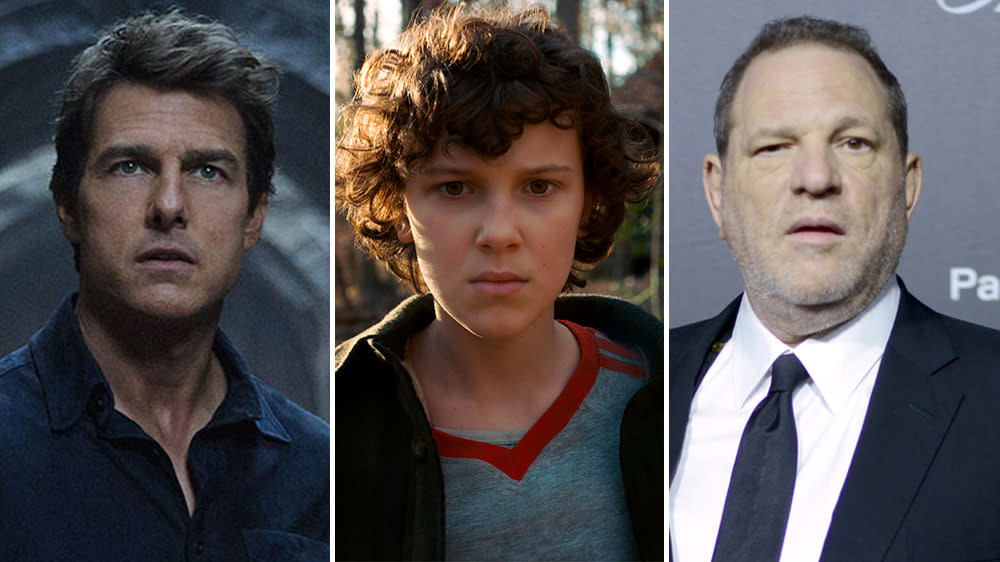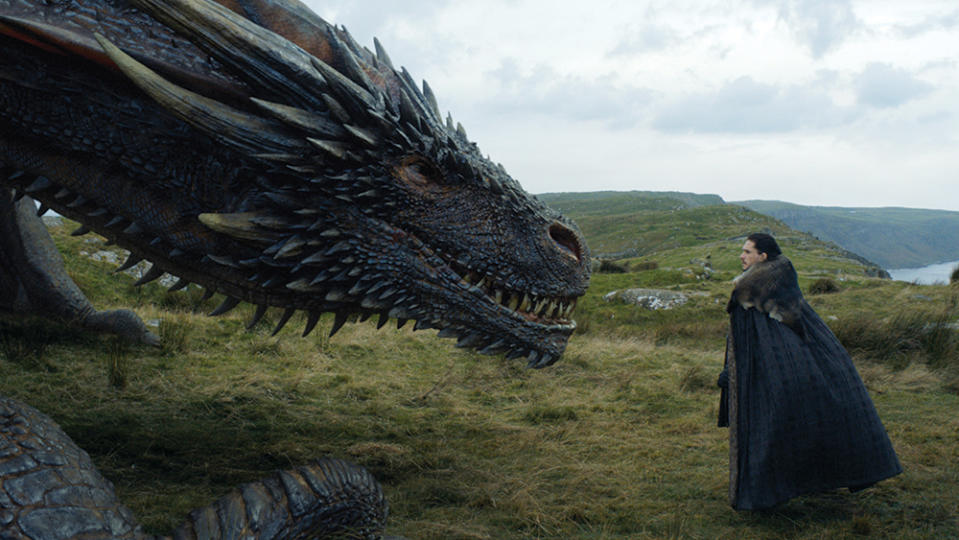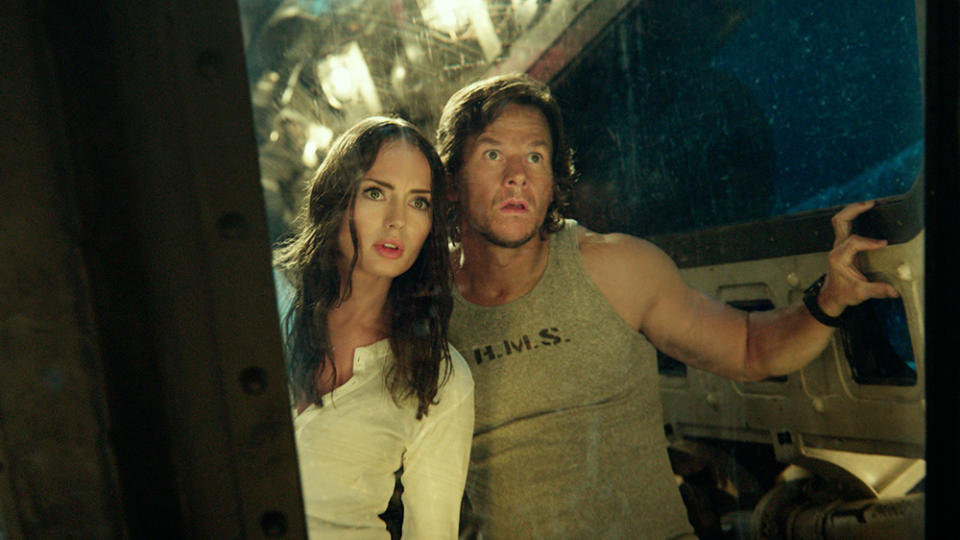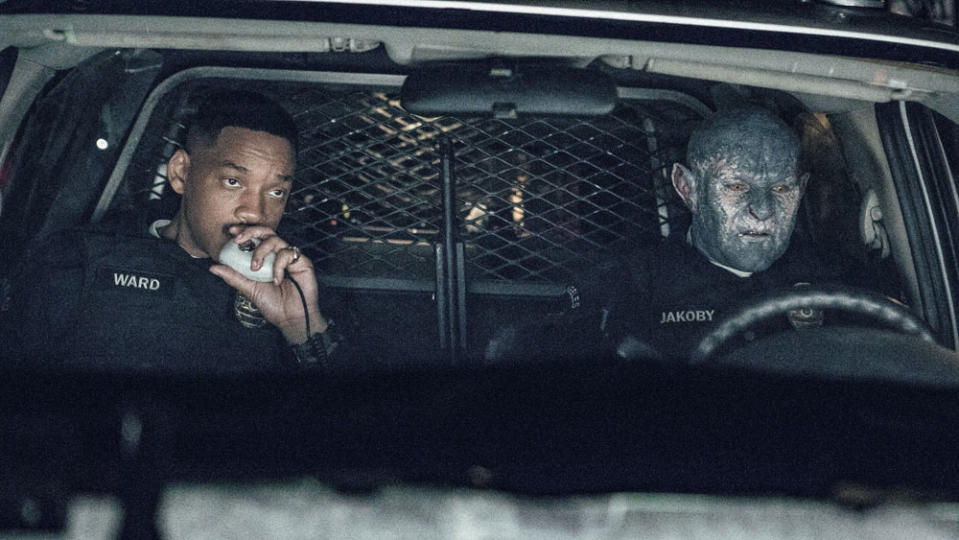Inside Hollywood’s Craziest Year: Shrinking Box Office, Netflix Rising, and a Harassment Reckoning

It’s safe to say that 2017 will go down as one of the craziest years in Hollywood history. Just take a gander at the past 12 months: Moguls and movie stars engulfed in an ever-widening sexual harassment scandal, the likely end of the hegemony of the big six studios, the worst summer box office results in decades, and a widespread loss of confidence by Wall Street in the future of the theatrical distribution business.
Forgive the entertainment industry if there’s a whiff of end times emanating from Los Angeles, and it’s not just because the hills around the city were recently ablaze. Look beyond the plumes of smoke from the wildfires, and there’s a widespread fear that the old order is breaking apart and something new and, frankly, scarier is emerging in its place.
“It’s not a sea change, it’s a tsunami,” said Jeff Bock, an analyst with Exhibitor Relations. “The tide has moved against movies. They used to be the hub of what entertainment is, but that core has shifted to streaming and television. Back in the day people talked about ‘Back to the Future’ or ‘E.T.’ when they talked about entertainment. Today, it’s ‘Stranger Things’ or ‘Game of Thrones.'”

They may be eager to say goodbye to 2017, but studio and exhibition executives are comforting themselves with the knowledge that the year could have ended up a lot worse. Domestic theatrical revenues will be down roughly 2%, ending the year between $11.1 billion and $11.2 billion, while attendance will be off between 4% and 5%. On the brighter side, the worldwide box office will likely hit new heights and even has an outside chance of reaching $40 billion for the first time. China, which had slowed its explosive growth, sprung back to life. As of the middle of November, theatrical box office in the middle Kingdom exceeded RMB50 billion. Last year, box office revenues for the entire year in China topped out at RMB45.6 billion.
The stateside numbers won’t be etched into the history books, but considering that summer box office sales were down nearly 15% year over year, following a string of massive flops such as “Baywatch” and “Valerian and the City of a Thousand Planets,” it’s impressive that box office returns were able to rebound through the final four months of 2017.
“If you look back to summer, there was so much sturm und drang abut the demise of the movie industry, ” said Chris Aronson, Fox’s domestic distribution chief. “It was so unfounded. There are peaks and valleys with any industry, and the bottom line is the summer was filled with disappointing movies. The fact that we’re going to get close to equaling last year’s record year shows things are not so dire.”
Investors certainly got turned off by the meager returns, triggering a mass selloff. AMC’s stock has fallen nearly 70% over the past year, while other publicly traded exhibitors such as Regal and Cinemark also saw their share prices nosedive over the summer.
Things do seem to be on the rebound. Beginning in September, when “It” and its child-munching clown Pennywise terrified audiences to the tune of $327.5 million stateside, theaters began to claw back into contention. There was more variety, which helped; a healthy mixture of indie favorites such as “Lady Bird” and “Three Billboards Outside of Ebbing, Missouri,” as well as more mainstream crowd-pleasers such as “Star Wars: The Last Jedi” and “Coco.” Then there were the breakouts that few saw coming — “Wonder,” for example, a tender drama about a young boy with a facial deformity, grossed over $156 million worldwide on a $20 million budget by serving as an antidote to blockbuster gargantuanism.
Back in the day people talked about ‘Back to the Future’ or ‘E.T.’ when they talked about entertainment. Today, it’s ‘Stranger Things’ or ‘Game of Thrones.’
JEFF BOCK
“Audiences continue to tell us they want to see something new and fresh,” said Jim Orr, Universal’s head of domestic distribution. “It can’t just be caped crusaders from top to bottom.”
Of course, these hits and misses were often overshadowed by an offscreen drama that started in October when dozens of women came forward to accuse indie mogul Harvey Weinstein of sexual harassment and assault. That scandal metastasized as more misdeeds and misbehavior came to light, ensnaring the likes of Dustin Hoffman, Kevin Spacey, Brett Ratner, and John Lasseter, and casting a pall over the business. This great reckoning has shown a darker side to power and celebrity, and the moral rot threatens to turn off rising generations of actors, writers, and directors, who may look beyond Hollywood for other outlets for their creativity.
There were certainly takeaways from what films connected with audiences and which ones suffered the cold shoulder. Comedies, with the exception of the raucous “Girls Trip” and the heartfelt “The Big Sick,” failed to ignite. “CHiPs,” “The House,” and “Baywatch” all flopped, as R-rated hijinks and gross-out gags grew tired. In contrast, horror films had a huge and wildly profitable year. “Split,” “Get Out,” “Annabelle: Creation,” and, of course, “It,” all scored, and, as an added bonus, cost far less than the typical major studio release. “Get Out,” for instance, smartly combined racial politics with scares, and grossed an astounding $175.5 million on a $4.5 million budget. A James Bond film would kill for those margins.
“There’s something about that shared experience of being in a theater, viewing a horror movie, that can’t be duplicated at home,” said Jeff Goldstein, domestic distribution president at Warner Bros. “You have people jumping and making noise and being shocked and scared together. It’s so unique.”
If horror continued to be a major box office force, there were signs that some major franchises are running out of steam. “Transformers: The Last Knight” was the lowest grossing entry in the long-running series, making roughly half of what the previous chapter, “Age of Extinction,” did globally. Likewise, “Alien: Covenant,” Ridley Scott’s attempt to trace the origins of the murderous extraterrestrials at the root of the legendary science-fiction franchise, performed anemically, eking out $240.7 million worldwide on a $100 million budget. The series’ future is now in doubt. And “Justice League,” an attempt by DC Comics to make an on-screen rival to the Avengers by uniting Superman, the Flash, Wonder Woman, Batman, and more costumed heroes, was excoriated by critics and will struggle to make money. In its aftermath, the comics maker is reevaluating its movie making approach and overhauling its executive team.

“Audiences aren’t dumb,” said Patrick Corcoran, spokesperson for the National Association of Theatre Owners, an exhibition industry trade organization. “When a movie has the number five at the end of its title, there are going to be concerns about how much story is left to tell.”
But launching new franchises to replace the old and doddering ones can be hazardous. The year will likely end without a new major film series being introduced, as most attempts to fashion fresh cinematic universes to exploit, ended in failure and frustration. Universal’s “The Mummy” was supposed to launch the “Dark Universe,” an interconnected series of monster movies. Audiences, however, had other plans, largely steering clear of the film, which grossed more than $400 million globally, but carried an $150 million price tag, as well as more than $100 million in promotional and distribution costs, making it a disappointment. That’s sent the studio back to the drawing board on its Bride of Frankenstein reboot. In the same vein, “King Arthur: Legend of the Sword,” “Valerian,” and “The Dark Tower” all were greenlit with visions of sequels and follow-ups, only to crash on the shoals of audience indifference.
Returning franchises can’t just lean on familiar characters or well-worn story lines, argues Adrian Smith, Sony’s president of domestic distribution. He points to “Spider-Man: Homecoming,” the third reboot in the wall crawler series, which found a new spin on a familiar tale by sending its hero back to high school and focusing as much on the drama around finding a date to prom as it did on world saving. The same was true of “Thor: Ragnarok,” which found the god of thunder shedding his signature long blond tresses in favor of a crewcut, and emphasized humor over heroic clashes.
“You have to find ways to stay fresh,” said Smith. “That’s harder to do, but you’ll be rewarded for it.”
One of the summer’s most unlikely hits, “Dunkirk,” a World War II epic, managed to break through the competition because it embraced the cinematic experience. Shot with IMAX cameras, the movie had a sense of scope and drama that needed to be experienced on a wide screen — a mobile phone could not have contained the action. Moreover, its director Christopher Nolan, used his media tour to sound a rallying cry for the importance of movie theaters, explicitly arguing that Netflix presented an inferior product.
“He motivated people not to get around to seeing it, but to go right out to it and watch ‘Dunkirk’ the way that the filmmaker designed his movie to be seen,” said Greg Foster, CEO of IMAX Entertainment.
Nolan isn’t alone in his views on must-binge TV. Netflix continues to be viewed by studios about as warmly as the four horsemen of the apocalypse. The streaming service has created a number of buzzy shows, from “The Crown” to “Stranger Things,” and is viewed as a more cost-effective alternative to moviegoing.
But even Netflix has faced growing pains, particularly when it comes to matching major studio’s ability to create big-budget entertainment. To that end, “Bright,” a $90 million-plus fantasy cop thriller with Will Smith, represented the company’s biggest film bet to date. The critical response was savage, with some reviewers calling the film the worst offering of 2017. Because Netflix does not share viewership data, “Bright” can only be judged by reviews and social media response. By that measuring stick, Netflix still faces a steep learning curve. RBC Capital’s Mark Mahaney, who tracks Netflix, says it’s unclear yet whether Netflix can captivate audiences with film compared with popular television series. TV shows “have always lent themselves beautifully to streaming,” Mahaney said, noting that people can “snack” by watching an episode or two or binge by watching several episodes. “One movie doesn’t lend itself to snacking or binging,” he said.
Rich Greenfield, a BTIG analyst who tracks Netflix, said the challenge for the streaming company will be to replicate the water-cooler talk status of many of its hit TV shows with its film offerings. “Bright,” Greenfield said is just the start of a long-term effort to disrupt Hollywood by making major tentpole films that can keep people at home rather than viewing a movie out.
“I just think this is the tip of the iceberg,” Greenfield said. “You’ve got to start somewhere. But this is the beginning of a very aggressive long-term strategy.”

Netflix isn’t the only company who sees opportunity in the tumult. Byron Allen, best known as a producer and stand-up comic, has refashioned himself into a movie mogul. His Entertainment Studios is getting into the mid-budget business that major studios have abandoned in favor of comic book movies and special effects opuses. So far, the strategy is working. “47 Meters Down,” a low-cost movie about two women fighting off sharks, was the company’s first release. It went on to gross $53.2 million worldwide, against a production budget of $5.5 million.
“This is a great time to be in the business,” said Allen. “The big studios are getting bigger. They’re consolidating and pursuing much bigger box office per film. We felt there was an underserved audience out there that was interested in movies that were not about spectacular superheroes.”
Going forward, Allen says Entertainment Studios plans to release between 15 to 20 films a year. That could help fill a void. The year closed with Disney announcing plans to acquire the bulk of 21st Century Fox’s film and television holdings. This year, Disney released fewer than 10 films and Fox fielded more than 20 pictures. It’s unlikely that the combined company will make north of 30 films, which should substantially reduce the number of movies being released annually. It also shrinks the number of major studios from six to five, meaning that there are now fewer homes for great scripts and talented directors looking to make a mark. Yoking together Fox and Disney creates a moviemaking juggernaut, but some of the studio’s rivals insist it also could be a positive development.
“With the Disney acquisition of Fox, it can seem daunting (they controlled over 90% of the box office last weekend), but I also see this as a combining of resources to further spur content creation – the bar for quality of the content will raise overall, which helps the overall industry in terms of driving people to the theaters,” said Bob Berney, head of marketing and distribution at Amazon Studios.
As for the moviegoing experience, despite the introduction of plush seats and better sound, it remains largely unaltered. Audiences shell out between $10 to $20 bucks for a seat, are bombarded with a half hour of commercials and twenty more minutes of trailers, and asked to pony up for troughs of popcorn and over-sized sodas. That’s not to say that some entrepreneurs aren’t hoping to shake things up. MoviePass, which aims to be the Netflix of cinema going, has attracted more than 1 million subscribers to its service by charging $9.95 a month in exchange for enabling customers to see a movie a day. More important, it’s a hit with a key demographic. At a time when younger moviegoers have been on the decline, 75 percent of MoviePass subscribers are millennials.
You have to find ways to stay fresh. That’s harder to do, but you’ll be rewarded for it.
ADRIAN SMITH
“Young people have been abandoning theaters, but they make up our first wave of customers,” said Mitch Lowe, MoviePass’ CEO. “They grew up with subscription services like Netflix and cable and Hulu. They prefer to see movies in the theater, but they don’t like the risk of seeing a movie they hate and wasting fifteen bucks. This gives them an alternative.”
There are problems with this business model. MoviePass pays full freight on each individual ticket that it’s customers buy, which means that it is losing money on a per-transaction basis and heavily subsidizing its subscribers’ movie-going. The company hopes that the data it gathers on its customers will eventually be so valuable that studios or movie theaters will give them a steep discount or that it will be able to monetize the information in a different way. It’s unclear if that will happen, particularly given that AMC, the world’s largest exhibitor, has at various points threatened legal action. If MoviePass doesn’t find a way to turn a profit, it could find itself in dire financial straits.
MoviePass’ success at signing up customers does point to the fact that this is an industry ripe for innovation. Paul Degarabedian, a box office analyst with ComScore, said he thinks that theaters should explore doing televised Q&A’s with talent following screenings. That’s something that Netflix can’t offer, he reasons.
“Let’s get creative people and think outside of the box,” he says. “We can’t become the next Tower Records.”
Ricardo Lopez contributed to this report.
Related stories
Seth Meyers Says 'We've Got a Lot to Talk About' in Golden Globes Promo
What's Leaving Netflix in January 2018
Dave Chappelle to Drop Two Netflix Specials on New Year's Eve
Subscribe to Variety Newsletters and Email Alerts!

 Yahoo News
Yahoo News 
